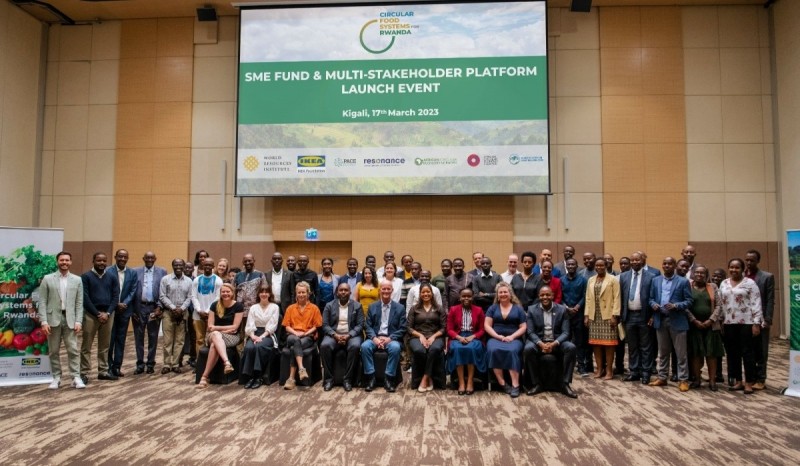
The Government of Rwanda and its partners have launched a fund that will enable small and medium enterprises (SMEs) to address food loss and valorise food waste.
Food waste valorisation means transforming food waste into food products, animal feed products, and compost among others.
The fund to address food loss and waste from farm to table is established at the time up to 40 per cent of the total food produced each year is lost or wasted in Rwanda, according to the UN Environment Programme’s Food Waste Index 2021 report.
Studies showed that this amount of waste represents food that can be grown and harvested on 21 per cent of the total national arable land in the country.
The amount of such food waste also accounts for 12 per cent losses to Rwanda’s annual GDP. It is estimated that 164 kilogrammes of food are wasted per capita in Rwanda every year.
The study shows that calculated food waste also contributes 16 per cent of greenhouse gas emissions.
Sylvie Mugabekazi, Acting Chief Executive Officer of Rwanda Cleaner Production and Climate Innovation Centre (CPCIC), said that the fund could support at least 20 SMEs by 2025.
“The fund will provide technical assistance to SMEs so that they address food waste. At least seven SMEs could be technically supported every year,” she said.
The project looks at regenerative transition, on-farm storage, and handling business, agri-food logistics services, by-product valorisation, new product development, and market and value chain linkages to address food loss and waste from farm to table.
“Globally, roughly one-third of food produced is lost or wasted, which amounts to about 1.3 billion tonnes per year, while many don’t have enough to eat. Rwanda is also not isolated from this. Building a circular economy for the agri-food sector is, therefore, very crucial to address this challenge,” said Christian Sekomo Birame, Director of General of the National Industrial Research and Development Agency (NIRDA).
Less than two per cent of food by-products are recycled
According to studies, less than two per cent of valuable nutrients in food by-products and waste are currently recycled.
And by using these nutrients as fertilisers, in animal feed, new business opportunities can be created, and less damage to the environment.
He said that the fund will provide incredible support to SMEs to help them access the education, technical assistance, and networking needed to create and implement successful and sustainable circular business models in the agri-food sector.
“Farmers and vendors, for instance, can have cold rooms and fridges to avoid food loss. Market linkages and agro-processing is also a solution to address food loss. Even if the number of SMEs to be supported will be limited, we hope that the model will be easily scaled up to other SMEs,” Birame said.
The project was funded by IKEA Foundation and is being implemented by World Resources Institute (WRI), Platform for Accelerating the Circular Economy (PACE) Secretariat, Resonance, African Circular Economy Alliance (ACEA), African Circular Economy Network (ACEN) and Cleaner Production and Climate Innovation Center, which operates under the National Industrial Research Development Agency (NIRDA).
According to Rebekah Shirley, Deputy Director for Africa at the World Resources Institute, “Food loss and waste lead to reduced economic returns. While working to increase production, we also have to prioritise reducing waste to feed more people sustainably and reduce environmental impacts.”
Noel Nizeyimana, the chief executive of Greencare Rwanda Ltd, said that 80 per cent of waste dumpsites in Huye District are organic waste, most of which is food.
“That is why we need advanced technology to turn such waste into organic fertilisers to increase agriculture production and reduce environmental production,” he said.
He added that the start-up is currently producing 600 tonnes of organic manure per year with a target to produce 1,000 tonnes annually in the coming years.
“That is why we need access to the SME fund to improve skills and technology in valorising food waste,” he said.
The government of Rwanda has launched a 14-year circular economy action plan that needs $211.2 million to be implemented in managing waste and adopting clean production technologies.
Source: https://www.newtimes.co.rw/article/5897/news/health/rwanda-launches-sme-fund-to-recover-40-of-wasted-food

